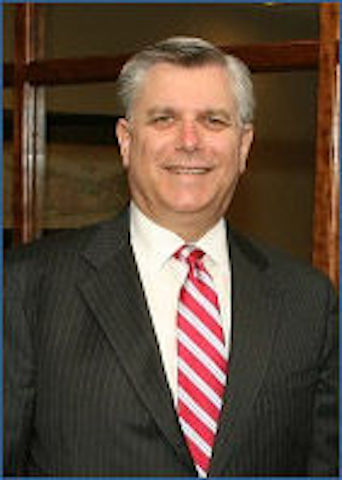The attorney representing a developer seeking to construct an apartment building in Great Neck Plaza took issue last Wednesday with provisions the village is considering to amend its zoning code for automated parking garages.
Paul Bloom, who represents Effie Namdar, the developer of a proposed 61-unit apartment complex at 15 Bond St., said at last Wednesday’s Board of Trustees meeting that provisions in the proposed law to restrict automated parking garages to residential buildings and to require a 24-hour, seven-day-a-week on-site attendant for the garage were too restrictive.
Of the limitation to residential buildings, Bloom suggested that the board was tying its own hands.
“There are circumstances which may arise where you would consider having it in a mixed-use building as opposed to a strictly residential building,” he said. “There are circumstances that may arise where there may be a good reason, a reason to the benefit of the village as a whole, that there is excess parking available that this board may want to consider permitting nonresidents to have access under whatever conditions the board may adopt at that period of time.”
Deputy Mayor Ted Rosen said village officials wanted to go slowly in regulating the use of automated parking garages since they are new to the village.
“I think it’s probably prudent to go slowly, get some experience, albeit in a residential building, and perhaps down the road, even though it does involve amending the law, then consider the possibility if appropriate at the time,” Rosen said.
Automated garages use computers, cameras and sensors to mechanically move a car and park it in an empty spot. There are currently no provisions in the village code regarding automated parking garages.
Namdar is seeking to construct an underground automated parking garage for residents of the proposed Bond Street building, which Mayor Jean Celender has said is one reason the village is looking to amend its code.
Bloom argued that it would be “anticipatory in a positive way” for the village to have provisions already in place if an application comes before the board seeking to construct an automated garage for mixed-use or commercial buildings.
“I think you are restricting yourself, tying your own hands and not giving yourself the ability to consider circumstances that you don’t anticipate today,” he said. “And by adopting this legislation, yes, you can always change it, but why do you want to go through changing the law if in fact you can anticipate that there could be a possibility of circumstances you would consider other than what is provided in the code.”
Trustee Gerry Schneiderman said “the answer is no” and that the board will address any future potential automated garage uses as they arise.
Bloom also said the proposed requirement to have an on-site attendant at all hours monitoring the automated garage for at least six months is a “true expense that’s added on to the process.”
“Having somebody there at 2 o’clock, 3 o’clock, 4 o’clock, 5 o’clock in the morning, probably sitting and sleeping as opposed to doing anything with parking, is an expense we believe should be reconsidered by the board,” he said.
Ari Milstein, executive director of Automotion Parking Systems, which would manufacture the automated garage at 15 Bond St., said the intention of making sure there is easily accessible help for any residents who might have a problem with the system is good, but it is limiting since there are a “multitude of ways” to monitor a garage.
Milstein said Automotion has employees at its New York City base station who use cameras and speakers to monitor each of its parking garages.
Automotion, he added, has a public parking garage in Washington, D.C., that it has been monitoring for the past two years from New York. If an issue arises, a concierge or doorman from the location will alert Automotion and it gets solved.
Bloom said that since the code would require an applicant to return to the board to assess whether a 24/7 on-site attendant is still necessary, the six-month time period would be too long.
He also said that a building’s concierge or superintendent can become familiar with the automated system and be able to assist residents.
Rosen said he didn’t have an issue with decreasing the amount of time required for an on-site attendant as long as the applicant would have to come back to the board to look at whether or not the use of an automated garage is feasible without one.
The board voted to adjourn discussion of the proposed code amendments to send them to the Nassau County Planning Commission for review and to further discuss the proposal. It will next be discussed at the Feb. 1 board meeting.



